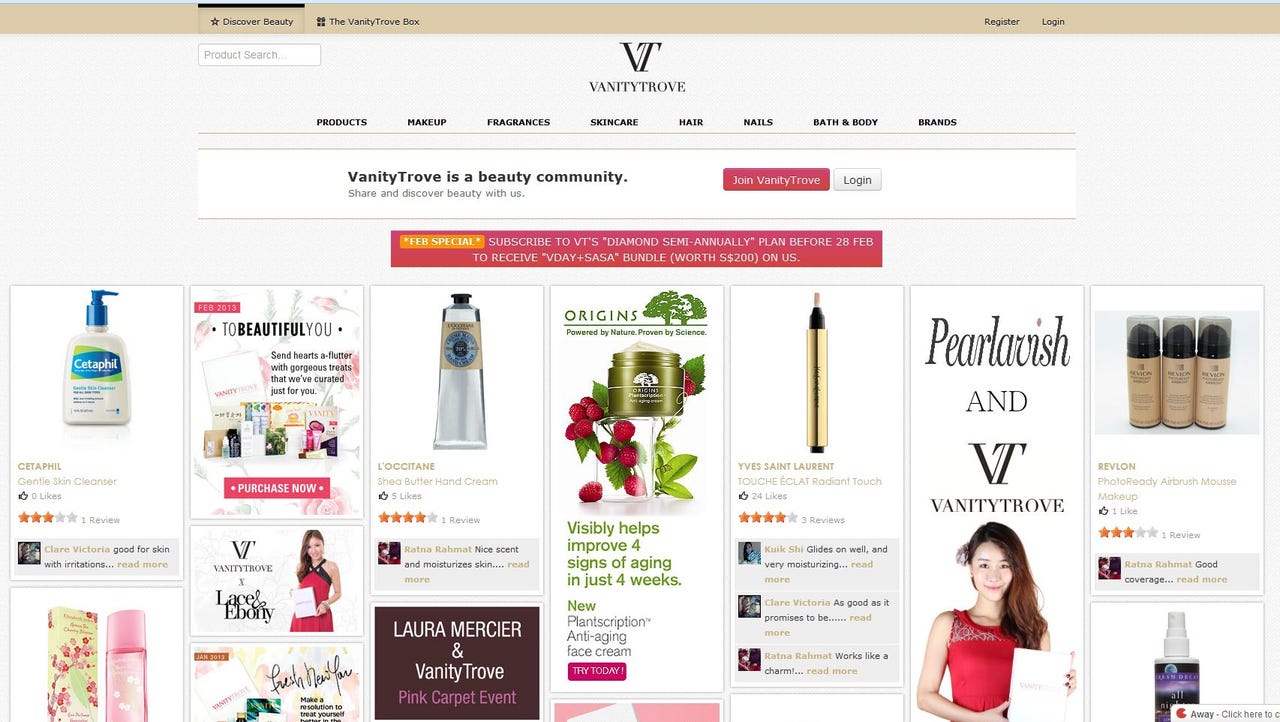Singapore beauty startup eyes SEA market


Singapore beauty-box startup plans to "conquer" Southeast Asia as it looks to leverage its geographical market advantage, wide network and strong customer service, and target higher end consumers.
According to Douglas Gan, CEO and co-founder of VanityTrove, while Southeast Asia is smaller than other regions, competition is lower compared to a global scale. In a beauty-box business, members pay a fixed monthly fee to the e-commerce site to receive boxes containing samples of beauty products by mail.
Within the beauty-box space, market leaders had included Australia-based GlossyBox and U.S.-based BirchBox, Gan told ZDNet Asia in an interview Thursday. After GlossyBox pulled out of Southeast Asia to focus on North Asia, Europe and the U.S., and Birchbox acquired European market leader JolieBox, this gave VanityBox the opportunity to take the lead and expand into Southeast Asia, he pointed out.
Gan said there were other beauty-box players in Southeast Asia, but these had not expanded abroad, giving VanityTrove an edge in terms of wider market recognition.
The company currently has operations in Singapore, Malaysia, Indonesia, and Thailand, and expanded to Taiwan in December 2012 with the acquisition of GlossyBox Taiwan, he said. Moving forward, VanityTrove is looking to expand to another two Southeast Asian nations--Vietnam and Philippines--by year-end, Gan said, adding that this region would remain its priority before it ventured futher.
VanityTrove currently has "a few thousand customers", with the majority of subscribers aged between 25 and 34 years and "relatively well-off" female professionals, he said. The beauty-box concept appealed to women who were too busy to shop and preferred a service to "suss out the fuss" he noted.
"The business is also based on the concept of 'try, like, love'. Women try the products, they express their 'like' through reviews and posts on social media, and show their 'love' by making a purchase," he said.
Differentiation, customer service key to expansion
Although VanityTrove charges a higher member subscription fee at S$25 (US$20.22), it differentiates itself by focusing on only mid- to high-end beauty products such as Clarins and La Mer, Gan said. GossipBox and Birchbox, on the other hand, are more diversified in their products which include fast-moving consumer goods (FMCGs), he said.
He said the Singapore company was able to expand into neighboring countries because its five co-founders had a wide network of contacts across the region offering beauty samples and recommending local brands. For example, when VanityTrove began operations in November 2011, the co-founders leveraged social media to contact their friends to ask for beauty product samples and send out their first few beauty-boxes, before establishing business partnerships with beauty brands, he noted.
Delivering good customer service also played an essential role in helping the startup stand out from their customers, Gan said. For example, beauty boxes were delivered to Singapore customers personally before they started hiring a courier service, he said.
And because the business had been opened by five men without much knowledge and understanding of the beauty industry, gathering feedback was crucial for the business, he noted. In the past, for instance, customers would receive a card in their beauty-box which highlighted beauty products, discounts, and vouchers. However, the company received complaints that the graphics were "too crammed" and the lack of space on the brochure made it difficult to read. In response, VanityTrove published the information instead in the format of a small magazine, Gan said.